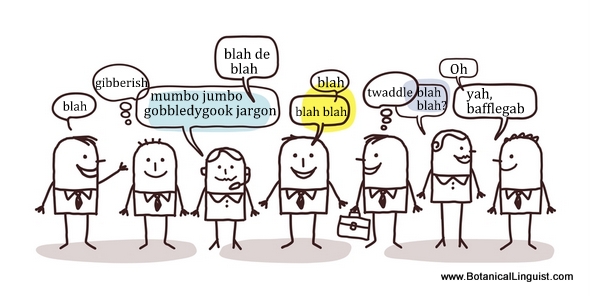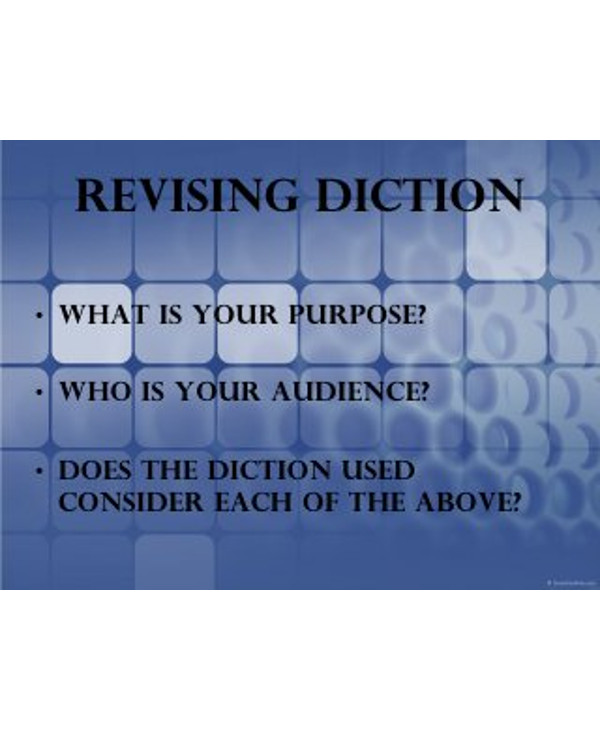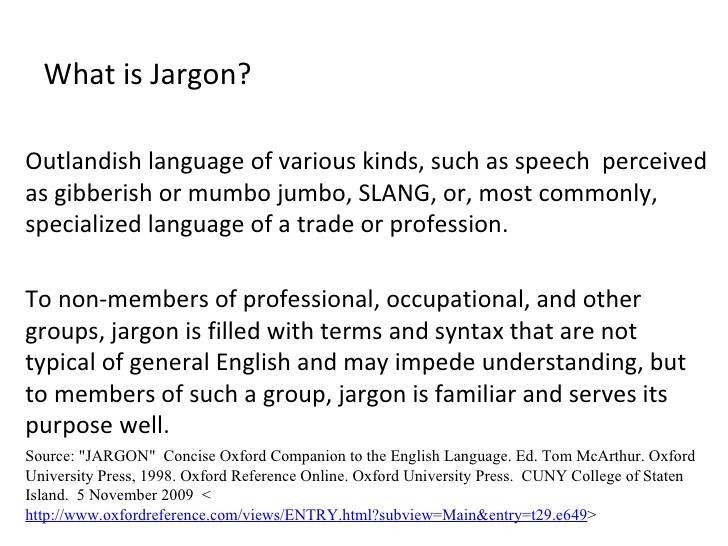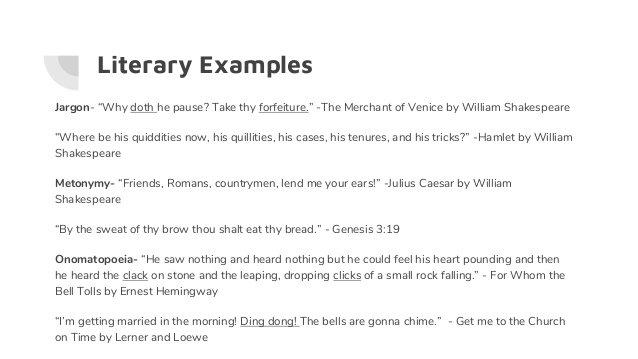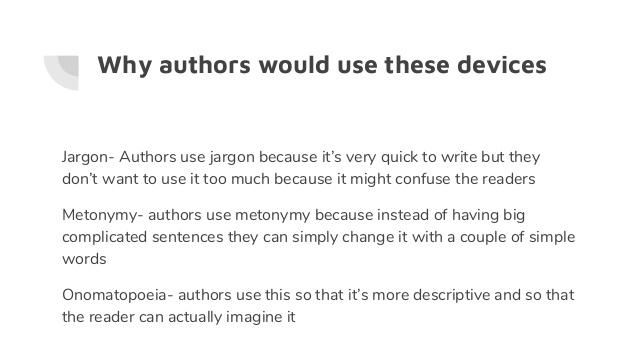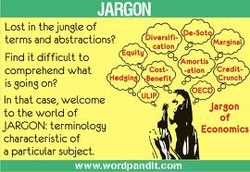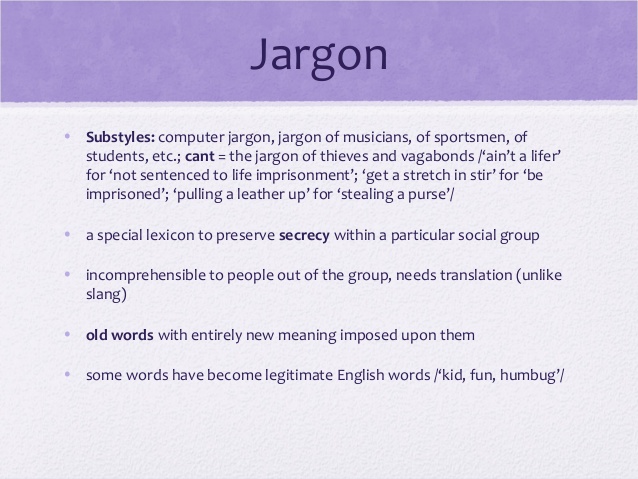6+ Jargon in Literature Examples
A jargon is what you call a specialized term or a technical language that is only understood by the members of the group who use the tongue on a regular basis as a part of their field of expertise. It’s basically the Mean Girls of language. Only those who are a part of the group can get in on the gossip, metaphorically speaking. You may also see allusion examples for kids.
Take lawyers and court judges, for example. They know and regularly use smart words which are meaningless to us, or which we may use for a different context. They use the word bench to refer to the judges in the court. But, to us, it’s just a long seat we often see at parks or old people’s backyards.You may also see gerund phrase examples.
Jargon Definition
What Is Jargon?
Literary Examples of Jargon
Uses of Jargon
Jargon is often used to appeal to a certain group (the group that can understand the term), or to embed a hidden meaning in their writing. It’s a lot like knowing Morse code which only your peers can interpret.
Jargon can also help us characterize a person. If he uses terms like BP or NPO, he’s probably in the medical field. If he uses the terms bubble or insolvency when talking about the economy and money, in general, he’s probably an accountant. Jargon sets one apart from the other based on his chosen profession and interests. You may also see onomatopoeia examples in literature.
But there’s more to jargon than to just create unwanted cliques and separation between different groups. It is really used as a medium for a more efficient form of communication between members of a certain group. Imagine no longer having to say “That player is good at everything but great at none” because you can just simply say that he is a utility player and the entire sports industry will understand what you mean.You may also see Appositive Examples.
For us, lazy people, incorporating jargon into our conversations with our peers can help us express our intentions more effectively without having to explain, in elaborate words, what we really mean.
We can just say chimera and our Architecture friends will know that we are referring to grotesque figures people somehow use for decorative purposes. But if we are talking to our literature buddies, they’ll interpret your choice of word as pertaining to the Greek mythology hybrid creature. You may also see study plan templates.
The History of Jargon
The word jargon can be credited to the Old French word jargoun which means twittering (and, no, we don’t mean the social media app). According to author Maurizio Gotti, the word circulated from Chaucer’s The Canterbury Tales. But, back then, it had a completely different meaning.You may also see pronoun antecedent examples.
Jargon was used to refer to unintelligible or meaningless talk and writing. In other words, gibberish. But, today, we know it as the unique language of a specific trade, industry, or profession. It is now considered as the shortcut language that an expert uses when talking to another expert.You may also see award acceptance speech.
Jargon is composed of ready-made expressions that you can just fire to your colleague, without feeling the need of coming up of other ways of explaining your point to him. From plain balderdash to positive connotation, jargon has evolved.You may also see noun clause examples.
Two unique interpretations from two very different fields of expertise, one word. Ladies and gentlemen, behold, the power of jargon.
Jargon, Slang, and Colloquialism
A lot of people confuse these three as synonymous because they share one similarity. But if we try to study the real roles they play, we will discover that, aside from that solitary likeness, they have nothing else in common.
Jargon, slang, and colloquialism all refer to a specified language that only certain groups of people use. However, colloquialism is bounded by geographic region. For example, what may be Coke to some areas in the United States may be soda or simply soft drink to others. It’s not identified by age, group, or class.You may also see relative clause examples.
Slang, on the other hand, is bounded by every factor we’ve already mentioned: geography, age, and class. It is a type of informal language which is more often utilized by teenagers in social settings.
Jargon, as we’ve already discussed, can be understood only by people who are a part of the same industry. It is not, and cannot be, bounded by region, class, or age. On the contrary, utilizing it and becoming a part of those who use it is a choice that only the individual can make for himself. After all, he can be an art enthusiast without using any relevant jargon.You may also see meeting email samples.
Why Authors Use Jargon
Understanding Jargon
Jargon and Literature
It is a novel writer’s job to make the fictional characters he created to be as realistic as possible. Which is probably why some of them feel the need to incorporate jargon into the conversations their characters engage in. Contrary to what you might be thinking, they don’t use jargon as a form of literary style. It doesn’t better their writing in any way.
However, as a part of fully shaping the character into a real human being, the character needs to act and speak like one of us. Which means that if the character is a lawyer, he can’t help using legal jargon. If he is a cop, he can’t help using police jargon. This doesn’t directly make the author’s writing more special, but it does help in making his characters sound more human.You may also see business plan executive summary examples.
Jargon in literature is neither necessary or unnecessary. It’s simply present for the author to use if he wants to. But there are cases when it is absolutely imperative to use at least one or two of these technical terms. For example, the book being written is a mystery fiction. It would be a little weird if the cops talked like normal civilians. We need them to spurt unintelligible acronyms, and official-sounding terms so that we, readers, can really feel that we are in a crime scene.You may also see Dependent Clause Examples.
With that being said, here are a few examples wherein the authors felt it absolutely necessary to include jargon into their character’s dialogue:
Hamlet by Shakespeare
Hamlet to Horatio: “Why, may not that be the skull of a lawyer? Where be his quiddities no, his quillities, his cases, his tenures, and his tricks? Why does he suffer this mad knave now to knock him about the sconce with a dirty shovel, and will not tell him of his action of battery? Hum! This fellow might be in’s time a great buyer of land, with his statutes, his recognizances, his fines, his double vouchers, his recoveries: is this the fine of his fines, and the recovery of his recoveries, to have his fine pate full of fine dirt? Will his vouchers vouch him no more of his purchases and double ones too, than the length and breadth of a pair of indentures? The very conveyances of his lands will scarcely lie in this box; and must the inheritor himself have no more, ha?”
The jargon you can find in this (really long) line are terms most commonly used by lawyers, judges, and other entities in court rooms. Here are their definitions:
Lawyers are people who practice law.
Tenures refers to a person’s right to hold or occupy something of a value for a given period of time.
Battery refers to the intentional and voluntary act of bringing about an unconsented harmful or offensive contact with a person, or with someone who is closely associated with them.You may also see subordinate clause examples.
Statutes refers to the written law enacted by a legislative body.
Recognizance is the obligation that a person takes before the court of law, recorded, and entered into, where the party recognizes and acknowledges that he owes a personal debt to the state.You may also see adjective clause examples.
Recoveries refers to the amount of money, and any other right or property, awarded to a plaintiff in a lawsuit.
Conveyances refers to the process of documenting the transfer of ownership of land from one party to another.
1984 by George Orwell
“The Ministry of Truth, which concerned itself with news, entertainment, education, and the fine arts. The Ministry of Peace, which concerned itself with war. The Ministry of Love, which maintained law and order. And the Ministry of Plenty, which was responsible for economic affairs. Their names, in Newspeak: Minitrue, Minipax, Miniluv, and Miniplenty.”
First of all, don’t worry if you don’t know about 70% of the words in that quote because Orwell made them up. (Miniluv? Miniplenty? Nope. Definitely not in our dictionary.) But this line from the classic dystopian novel is such a great example of jargon. We don’t understand the terms if there was no context provided because we are not a part of the fictional world that Orwell has made up. You may also see Noun Clause Examples.
That’s exactly how jargon works. Although, in reality, law, sports, arts, and medicine aren’t products of anyone’s imagination, the same concept applies. You won’t understand this term and that because you are not from that group, not an expert in that field. But if you were, it would sound just like normal English would. You may also see professional emails.
The Jargon We All Hate
Definitions of Jargon
Literary Jargon
Aside from the jargon we can find in many great books, literature (being an amazing separate field of expertise) also has quite a list of jargon that only its patrons can understand. Here are some of them:
1. Accent. This refers to the stress placed upon certain syllables in a line of verse. Normally, you would interpret it as that distinctive way of pronunciation unique to a particular nation or social class but, no, literature has a different take on the word.You may also see formal writings.
2. Act. This word refers to the main division of a play. But, to normal people, it would mean “to take action, or to do something.”
3. Anticlimax. In literature, this word is understood as an event or conclusion characterized by an abrupt shift from the important to the comical or the trivial.You may also see Reference Essay Examples.
4. Apostrophe. This is a type of figure of speech where the person addressed is not physically present.
5. Aside. In literature, this word points to a stage convention that is used to indicate words spoken by a character, but is only heard by the audience, and not by any of the characters on stage.
6. Cacophony, in literature, refers to harsh sounds introduced for poetic effect. But, to normal people, it’s really just a discordant mixture of sounds.You may also want to know more about adjective clause examples.
Jargon is such an interesting part of our language. To be able to enjoy using it, we must first have a thorough grasp of its concept. Hopefully, this article helped with that.You may also see Maid of Honor Speech Examples.



